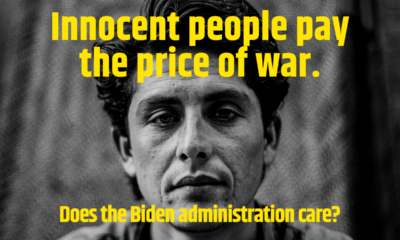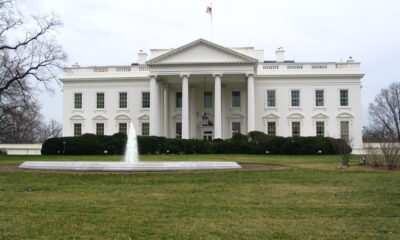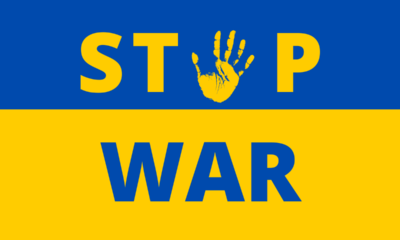Civilization
Samantha Power and the Politics of Genocide
Samantha Power disappoints Armenian Americans by not pressing for an acknowledgement of genocide against Armenians.

As a Pulitzer Prize-winning author who cut her teeth as a war correspondent in the Balkans during the 1990s, Samantha Power has made a career in raising awareness around the prevention of genocide. She has been recognized as one of the world’s leading voices on U.S. foreign policy and as a global defender of democracy and human rights.
She’s earned the trust of two U.S. presidents, where she served as the ambassador to the United Nations during the Obama administration and currently serves President Biden as the administrator of the United States Agency for International Development.
But for all her accomplishments, there is a major disconnect between what Power says as a private citizen and her actions as a public official. Take the Armenian Genocide, for example. In her most recent book, “The Education of an Idealist,” Power dedicates significant time to the topic, where she essentially apologized for not doing enough to pressure the Obama administration to recognize the Armenian genocide while yielding to Turkey’s ongoing campaign of denial. Soon after her book came out, she went on an apology tour arguing that she tried to strike the right balance between idealism and realism, and in the end, concluded that the politics of genocide was too complicated.
Armenian Americans placed a lot of hope and faith in Power when she campaigned for Obama, who unequivocally promised to recognize the Armenian Genocide. That is why it was so disappointing when she broke that trust with Armenian Americans after Obama failed to honor that pledge and capitulated to Ankara’s wishes.
Power became the latest U.S. government official to turn a blind eye to Turkey’s malfeasance at the cost of appeasing a NATO ally where geopolitics and transactional diplomacy superseded human rights.
This was the same person who called out American policymakers in her landmark book, “A Problem from Hell: America and the Age of Genocide,” for not consistently condemning ethnic cleansing and mass murder while admonishing the country’s inability to prevent genocides from taking place.
Once she left the Obama administration and returned to academia, she was back at criticizing power brokers in Washington, D.C., for abandoning international diplomacy and failing to uphold human rights.
For instance, after the U.S. House of Representatives passed a resolution in 2019 that finally recognized the Armenian Genocide, Power wrote a column for the New York Times in which she said, “This resolution matters hugely to Armenian Americans. But it is also a reminder of how important truth-telling is to American foreign policy, and how ultimately self-defeating it is for the United States to bend to autocratic pressure tactics, whether from Turkey or anywhere else.”
But she failed to adequately address why she, too, succumbed to Turkish pressure as a member of the Obama administration and went on to say, “Now the Senate and President Trump should follow suit. The facts of what occurred a century ago demand it.”
Now, as administrator of the U.S. Agency for International Development (USAID) for President Biden, Power has had a chance to make amends for her previous shortcomings but is seemingly making the same mistakes again, which involves Armenians, again.
For more than three years, Azerbaijan, a country ruled by a petro-dictator, has embarked on a genocidal campaign to wipe out all Armenians living in their ancestral homeland of Nagorno-Karabakh. It started in the fall of 2020 when Azerbaijan launched an illegal and unprovoked war against Armenia, which was followed by a nearly 10-month road blockade of the Lachin corridor which denied much-needed supplies like food, water, medicine, and fuel to Armenians living in the region.
Azerbaijan’s campaign culminated in September when they ethnically cleansed more than 120,000 Armenians from Nagorno-Karabakh. Luis Moreno Ocampo, the former chief prosecutor of the International Criminal Court, called it a genocide, making it one of the world’s largest refugee and humanitarian crises.
Power recently visited Armenia as part of an effort to show support for Armenian refugees. Yet she remained silent on Azerbaijan’s aggression and dodged questions on why she didn’t do enough to prevent this humanitarian catastrophe while posing for the cameras at various stops, including the Armenian Genocide Memorial (Tsitsernakaberd).
Nonetheless, Power did recently announce that USAID will send an additional $4 million to help displaced Armenians with food assistance and humanitarian protection, which drew the ire of Azeri officials.
While this latest move is a welcomed and necessary step in the right direction, it doesn’t go far enough and still absolves Azerbaijan of its role in creating this humanitarian crisis in the first place.
There is no denying Samantha Power’s knowledge and competency when it comes to human rights, but her failure to match those proficiencies as a public official threatens to undermine her legacy. She still has time to set the record straight. She can start by holding Azerbaijan accountable while she is in a position of power and influence instead of waiting to write about it in her next book.
This article was originally published by RealClearPolitics and made available via RealClearWire.
Stephan Pechdimaldji is a communications strategist living in the San Francisco Bay Area. He is a first-generation Armenian American and grandson of survivors of the Armenian genocide.
-
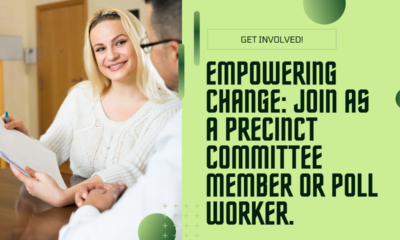
 Constitution5 days ago
Constitution5 days agoPrecinct Strategy scores again
-

 Civilization3 days ago
Civilization3 days agoLegacy media already assume Trump wins
-

 Civilization4 days ago
Civilization4 days agoSCOTUS Is Last Bulwark Against Critical Legal Studies
-
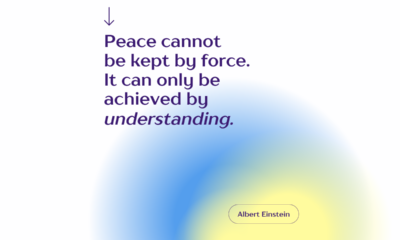
 Civilization1 day ago
Civilization1 day agoAntisemitism – and misguided legislation
-

 Civilization4 days ago
Civilization4 days agoEnergy Pipeline Companies Should Follow the Rules of the Road
-

 News5 days ago
News5 days agoTime to Fly – Really Fast
-

 Education5 days ago
Education5 days agoThe Road Back to Normalcy Starts Where the Problem Began: College Campuses
-
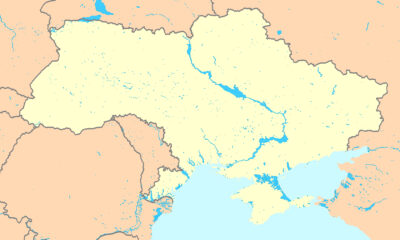
 Civilization4 days ago
Civilization4 days agoWhat 10 Years of U.S. Meddling in Ukraine Have Wrought (Spoiler Alert: Not Democracy)




